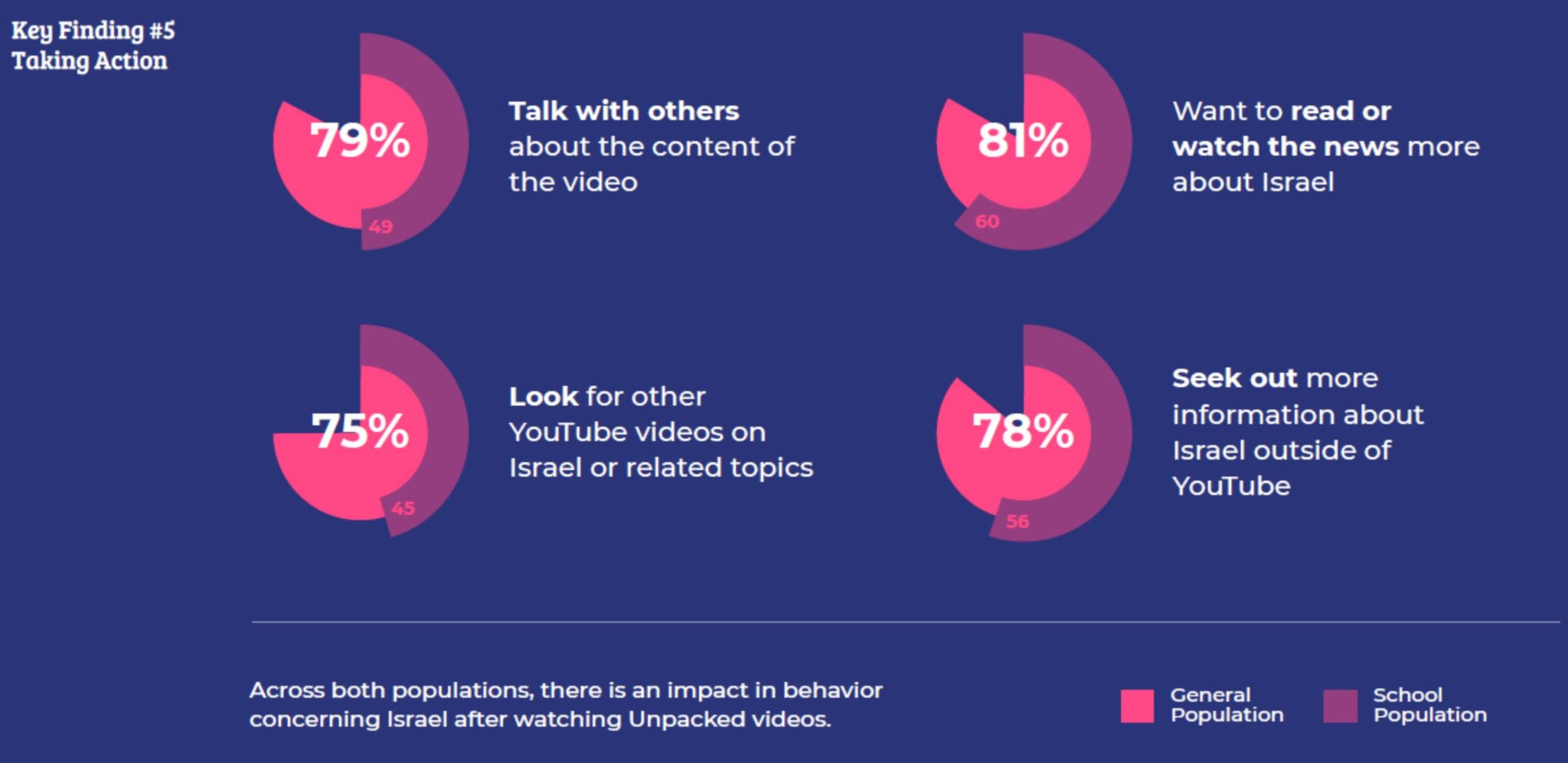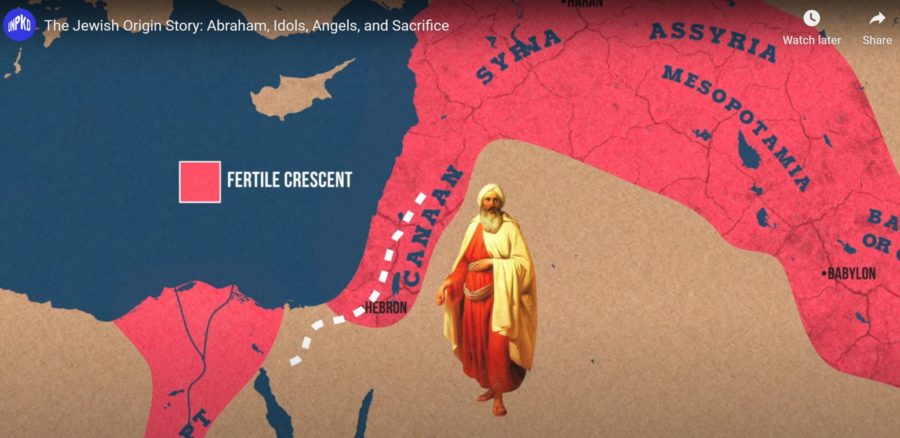Challenge
In 2018, Dina Rabhan started her second year at OpenDor Media, formerly known as Jerusalem U. OpenDor wanted to better understand the impact of its Israel- and Jewish-related videos on viewers; however, it did not yet have a clear and consistent enough sense of the outcomes it sought to produce across the organization’s many activities. This challenge led to Rosov Consulting’s first phase of work with OpenDor: developing a logic model that made explicit the outcomes the organization wanted to accomplish and how it worked to accomplish its goals. With the successful conclusion of this consultancy, OpenDor turned to Rosov Consulting in 2019 to help develop a research instrument to identify the extent to which OpenDor’s Israel-focused videos delivered these newly identified outcomes. The subjects for this study were Jewish students in OpenDor’s partner school program and a sample of viewers from OpenDor’s YouTube channel.
Approach
The logic model consultancy was a turning point for OpenDor. The process helped clarify which of OpenDor’s activities were not directly contributing to its core goals and which were. The logic model process validated a process already under way at OpenDor to concentrate its activities within three divisions: Imagination Productions (film), Unpacked (YouTube, Instagram, etc.), and Unpacked for Educators (complementary educational resources and curricula supporting educators who were using OpenDor’s media content). The logic model also helped make explicit what specifically OpenDor was seeking to achieve when contributing to Jewish young adults’ knowledge about Israel, their attitudes toward Israel and their Jewish identity, and their behavior related to Jewish life engagement. There was now flesh on these bones.
With the conclusion of the logic model process, OpenDor had an opportunity to establish a baseline for these now more fully elaborated outcomes by engaging in its first-ever research endeavor. To do this, over the 2019–2020 academic year, Rosov Consulting surveyed two populations to measure the impact of OpenDor’s videos on viewers. The first population was Jewish high school students from OpenDor’s 14 partner schools who were given access to Unpacked videos and Unpacked for Educators educational resources. The second population consisted of a harder-to-reach general sample of viewers of video content on OpenDor’s YouTube channel and from other partner organizations.
For Rosov Consulting, working in the Jewish media sector was a new experience, but the task of developing a logic model—determining priorities and articulating what an organization does to achieve them—is a close to universal exercise. This discipline was readily applicable to the task at hand. In the second phase of work, conducting research, there was a learning curve in determining what outcomes are reasonable to expect from engagement with video media. It was exciting to bring general principles of survey design and analysis to a new field of content. This process resulted in a study that yielded important results for OpenDor and informed how they operate today—and will likely shape future work they are considering. For Rosov Consulting, the know-how gained through this consultancy informed subsequent evaluation work with 70 Faces Media across its many media brands, and thereafter with Makom, a project of the Jewish Agency for Israel, exploring the learning gained from viewing contemporary Israeli music videos.
Results

The study generated valuable findings about the media consumption behaviors of the populations (mainly Millennials and Gen Zers) that consume OpenDor’s content and, in turn, the impact of that content on their knowledge, attitudes, and behaviors toward Israel.
- Half of respondents reported they go on YouTube to learn about Israel.
- A majority of respondents found OpenDor videos unbiased, neither left- nor right-leaning politically.
- 82% of respondents felt they better understood the complexity of Israel after viewing at least one of the videos.
- 75% of respondents felt more confident to discuss Israel topics after they had viewed OpenDor’s content.
- Over half of the respondents want to take action, such as read a news story and talk with others about Israel.
- The general population was greatly impacted from a single video, but there is an even greater impact on individuals when they watch multiple videos.
- Respondents with a higher “Israel background”–meaning a past Israel education experience — report a 12% greater attitudinal and behavioral outcome.
These are promising findings for OpenDor. At the same time, both Rosov Consulting and OpenDor understand that the impact of these videos is quite different from the impact one might experience from other kinds of Jewish engagement, such as text study or Israel travel. OpenDor wants to better understand the outcomes from these videos and to more deeply understand the benefit of repeated exposure to video content.


